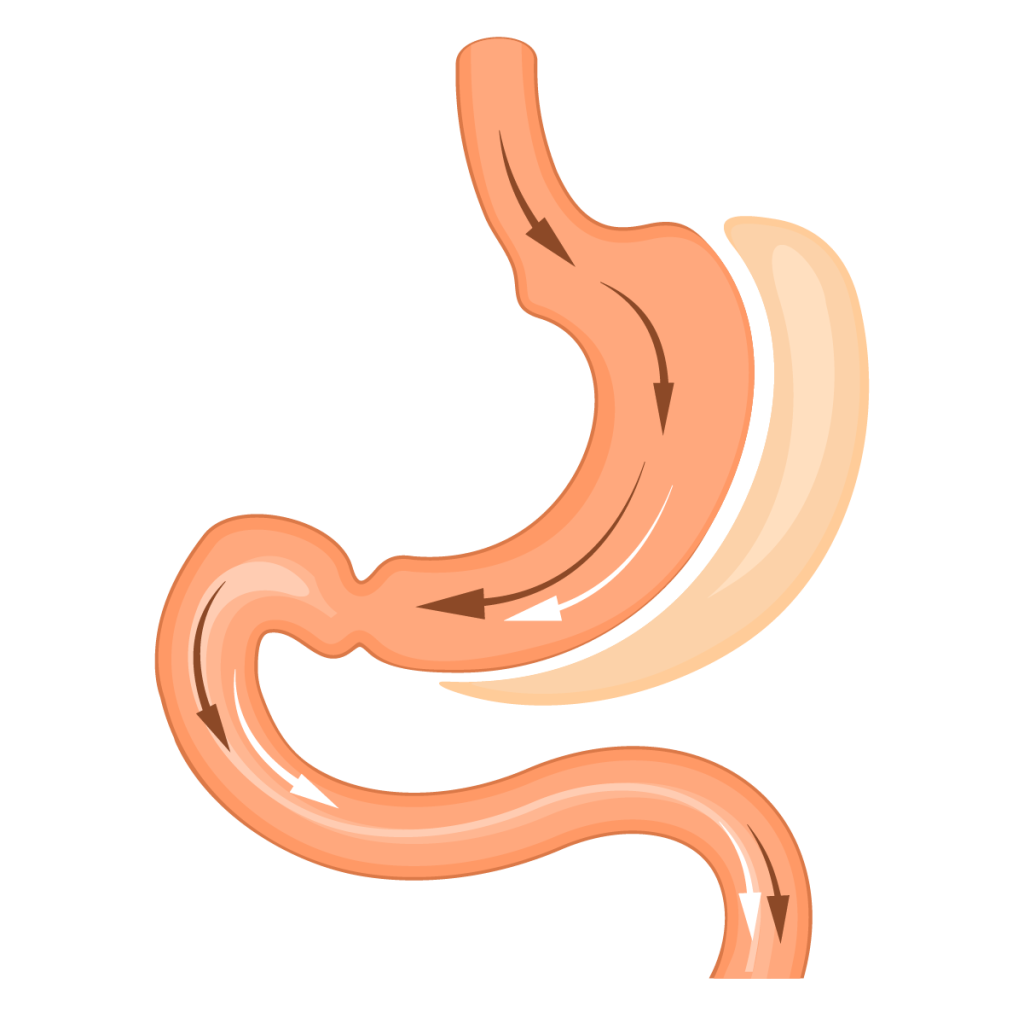Sleeve gastrectomy
What is Sleeve Gastrectomy?
How Does Sleeve Gastrectomy Work?

The procedure involves a vertical resection of the stomach, creating a narrow, tube-like gastric remnant. This change is irreversible, meaning that the removed portion of the stomach cannot be restored.
What Are the Benefits?
Sleeve gastrectomy is a quick and effective procedure with minimal post-operative nutritional complications, such as lower risks of deficiencies. These advantages, combined with a high quality of life after surgery, have made it the most popular bariatric surgery in Italy and worldwide. Key benefits include:
- Significant weight loss, averaging 60% of excess weight
- Fewer nutritional deficiencies compared to other bariatric procedures
- Improved quality of life with minimal dietary restrictions
However, the failure rate is higher for patients with a BMI over 50, who may require additional procedures for optimal long-term results.
What Are the Potential Complications?
As with any surgical procedure, sleeve gastrectomy involves certain risks, including:
- Gastroesophageal reflux
- Constipation
- Mild deficiencies in iron, folic acid, and vitamin B12, particularly in women of childbearing age during the first year post-surgery
- Acute vitamin deficiencies caused by persistent vomiting
- Stenosis (narrowing) of the gastric sleeve
Who Can Benefit from Sleeve Gastrectomy?
This procedure is suitable for a wide range of patients but may be less appropriate for those with severe type 2 diabetes or gastroesophageal reflux disease (GERD), where gastric bypass may be more effective. Patients with a BMI above 50 may have a higher likelihood of weight regain over time. In such cases, a more advanced procedure like the duodenal switch (a malabsorptive surgery) might be recommended as part of a sequential therapy plan.
Follow-Up Visits
Regular follow-up visits are essential for optimizing weight loss and managing potential complications like gastroesophageal reflux or vitamin deficiencies. These check-ins help ensure a smooth recovery and sustained results.
Preparation Requirements
No specific preparation is needed before undergoing sleeve gastrectomy, aside from an esophagogastroduodenoscopy to check for reflux esophagitis and other gastric or duodenal conditions.
Bariatric and Metabolic Surgery
Surgical treatment of patients with morbid obesity

Sleeve gastrectomy



